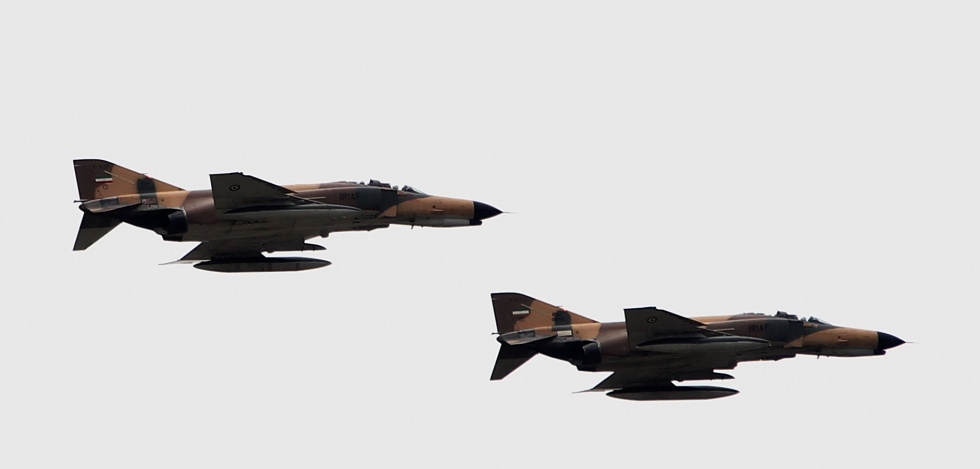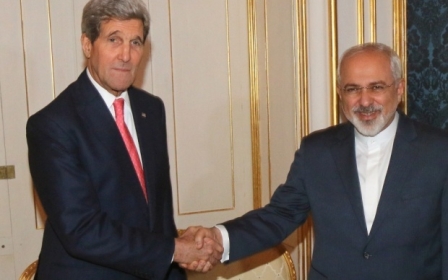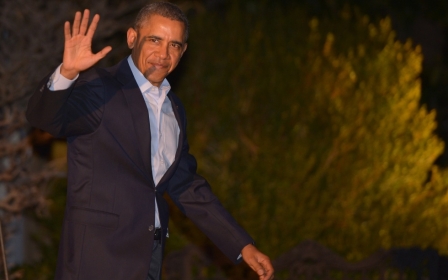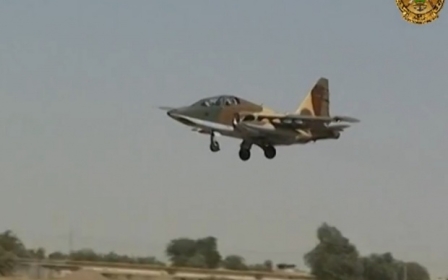Iran confirms Iraq air strikes after initial denial

A senior Iranian official said the country's military had conducted air strikes against Islamic State (IS) group in Iraq, in an interview with British newspaper The Guardian.
Deputy foreign minister Ebrahim Rahimpour told the paper Iran conducted strikes for "the defence of the interests of our friends in Iraq", who he defined as the Baghdad government and the Kurdish autonomous region in northern Iraq, who are both fighting IS.
"In this matter, we did not have any coordination with the Americans. We have coordinated only with the Iraqi government," the newspaper quoted Rahimpour as saying.
"In general, every military operation to help the Iraqi government is according to their requests."
"Our assistance (to Iraq) is stronger than our assistance to Syria, because they are nearer to us," Rahimpour told The Guardian.
It would be the first official confirmation of air strikes by Tehran since US officials said earlier this week the Iranian air force carried out attacks in Iraq.
Iran at the time denied it had taken such action.
Air strikes would be politically sensitive as Washington and Tehran are historic enemies despite finding themselves on the same side against IS.
Iraq's prime minister Haider al-Abadi has said he had no knowledge of any Iranian air strikes.
"I don't think the Iraqi air force is directly communicating with the Iranian air force. It probably passes through political people first in which case the message may get distorted. So it is dangerous," Bruce Gordon, an American Cold War veteran pilot, told The Anadolu Agency.
That lack of coordination between foreign fighter pilots over Iraq is a causes for concern.
"There could be incidents among the fighter pilots that are not planned by either government," said the former Air Force Major with 4,249 flight hours.
“A hundred percent identification and de-conflicting is nearly impossible," said Gordon, who is an expert in radar and electronic warfare systems.
The battle in the air aside, what also concerns Gordon is attacking targets on the ground that can also be problematic if air and ground forces are not well coordinated.
"Attacking on the ground, you need to have someone on the ground who can tell the pilots where the enemy targets and where the friends are."
"If [the Iranians] don’t have proper information, they could easily leave bombs on wrong people," he said.
Iran has consistently denied having troops in Iraq, and was not invited to join a US-led military coalition against IS.
"The problem is not that America is refusing to coordinate with Iran. I think it's our allies, particularly Saudi Arabia, who are very much against any settling of disputes with Iran," according to Gordon.
Middle East Eye propose une couverture et une analyse indépendantes et incomparables du Moyen-Orient, de l’Afrique du Nord et d’autres régions du monde. Pour en savoir plus sur la reprise de ce contenu et les frais qui s’appliquent, veuillez remplir ce formulaire [en anglais]. Pour en savoir plus sur MEE, cliquez ici [en anglais].




